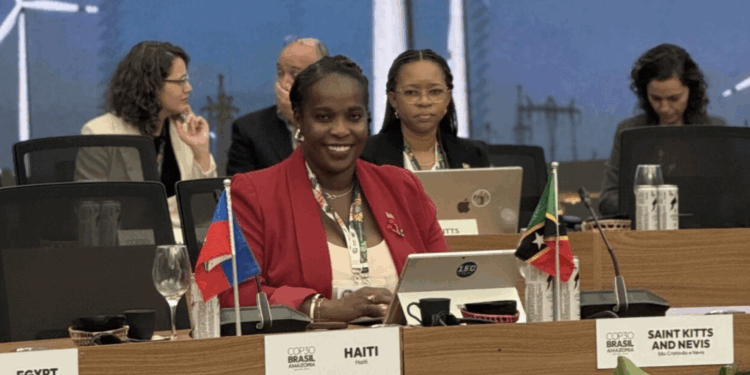Basseterre, 21 November 2025 – Saint Kitts and Nevis’ national delegation, headed by the Hon. Dr. Joyelle Clarke, Minister of Sustainable Development, Environment, Climate Action and Constituency Empowerment, has successfully concluded its participation in the 30th Conference of the Parties (COP30) held 7-21 November 2025 in Belém, Brazil.
For the Federation, this year’s edition of the annually hosted Conference served as a strategic opportunity to strongly champion the expansion of renewable energy systems and a just, inclusive clean energy transition as embedded in Pillar 1 of the national Sustainable Island State Agenda (SISA).
When asked about the importance of COP30 participation for the Federation, Minister Clarke highlighted that “the power and necessity of small island developing states on the multilateral scene cannot be understated – we are most proximate to the climate crisis and as such need to ensure that we are equally as proximate to the solution and decision-making spaces.” She continued, “this COP30, Saint Kitts and Nevis focused on reaffirming the importance of a global clean energy transition as the foundation for long-term economic stability, social wellbeing and the environmental security of our island nations especially as locally, we are making inroads forward in our renewable energy revolution”.
» Key Engagements
Leadership Roundtable and General Debate
Alongside regional and international leaders, the Hon. Minister delivered the first national statement at the second thematic session (Energy Transition) of the Leader’s Summit.
Her intervention, informed by the work of SKELEC, NEVLEC and our national Energy Unit, presented the extensive efforts being undertaken in the Federation towards a renewable energy transition – including our geothermal exploration, local grid upgrades, the institution of our solar battery energy and storage systems, advance metering infrastructure and programmatic road mapping. It further emphasized the importance of collective political will and advanced partnership toward this common goal.
The Minister presented in-plenary for a second time – this time in the general debate. The national address called for the international community to commit to energy security as a means of development security and strongly aligned with the positions of the Caribbean Community (CARICOM) and the Alliance of Small Island States (AOSIS).
» Partnership Successes
EU-SKN-GTI Partnership Agreement and the 100×100 Campaign
A groundbreaking partnership agreement was announced at a side-event co-organized by the Government of Saint Kitts and Nevis, Greening the Islands Foundation (GTI), Global Solar Council, and Blue Alliance under the theme “100×100 Global Launch: 100 Islands, 100% Renewable, Determination Beyond Hope”
In these margins, the Federation, in collaboration with the European Union (through its Euroclima program) and the Greening the Islands Foundation (GTI), was able to publicly operationalize the groundbreaking EU-SKN-GTI Partnership Agreement. This is an affirmation of Saint Kitts and Nevis’ commitment to achieving energy sovereignty through renewable sources, with the target of developing a comprehensive Integrated Resource Plan through the GTI 100% RES Initiative.
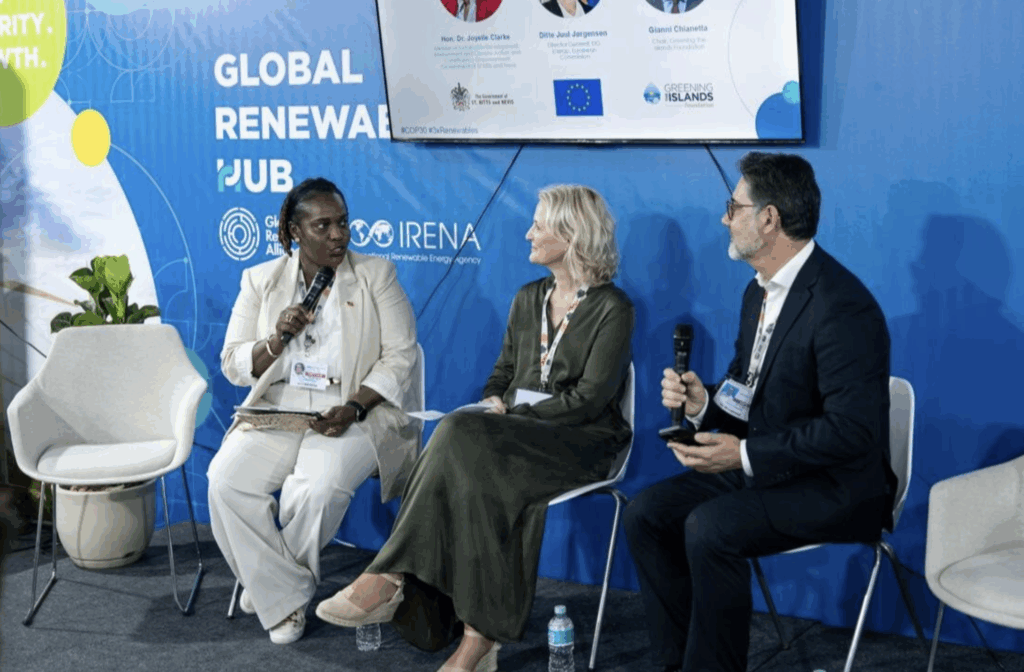
This multi-stakeholder agreement is a noteworthy development as it sets a powerful precedent for the rapid and integrated delivery of climate finance to developing island nations with Saint Kitts and Nevis serving as a model.
GCCM-SKN Partnership
The Global Center for Climate Mobility (GCCM) has been a longstanding partner of the Federation; a relationship most recently renewed through the piloting of the Communities Climate Adaptation Facility (C-CAF) which has provided community-based grants to support the resilience-building capacity of local organizations.
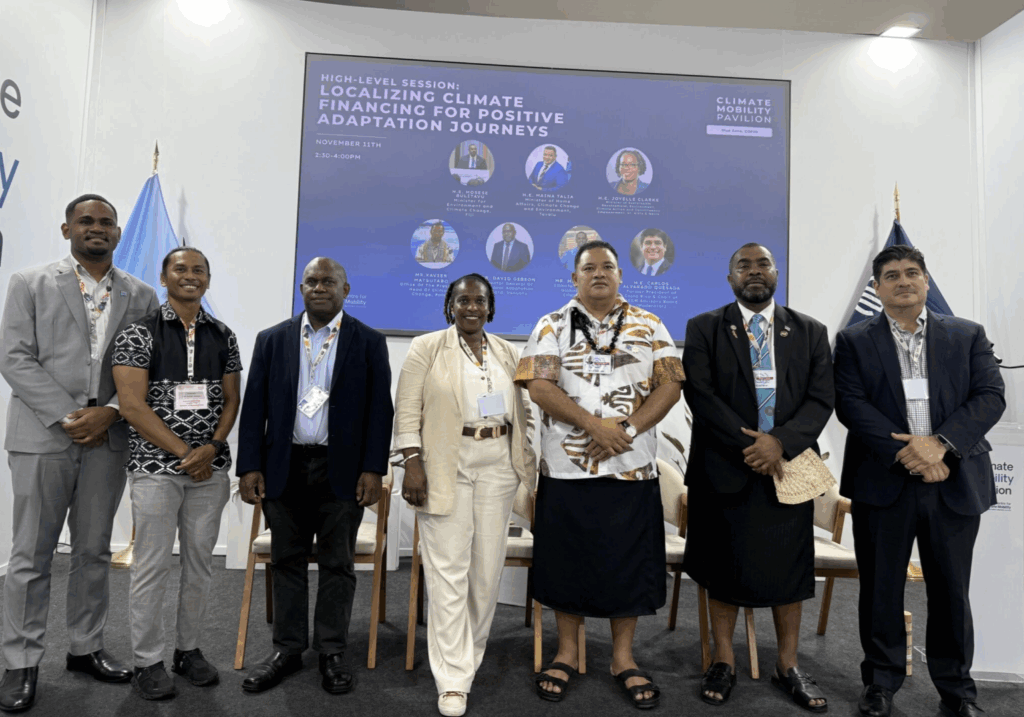
Outside of the plenary, the COP30 Pavilion exhibits offered a stage to reaffirm the Federation’s commitment to the GCCM and the wider climate mobility mandate. The delegation, as keynote speakers, panelists and facilitators, engaged multiple GCCM firesides and discussions on localizing climate finance, enabling positive adaptation journeys and preserving culture and heritage in the midst of the climate crisis.
» Bilateral Engagements and Media Exchanges
Leveraging the immense engagement potential of the Conference, Minister Clarke had the opportunity to sit with Under-Secretary General, Jorgé Moreira da Silva, Executive Director of the United Nations Office for Project Services to explore the potential of technical exchange towards upskilled local human resources that can support project design, management and implementation in the Federation and wider region.
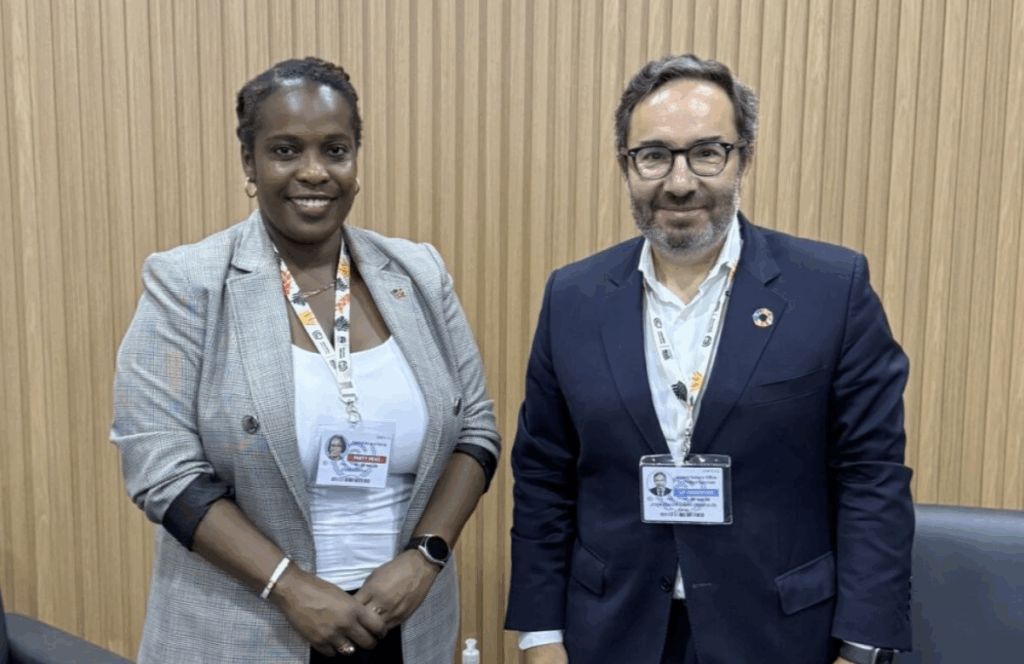
The Minister also met with the Republic of China (Taiwan) to reaffirm the Federation’s commitment to advocating for Taiwan’s inclusion and participation in the international climate conversations and action especially within the machinery of the United Nations.
She was also able to speak on the Federation’s commitment to advocating for our region through a series of engagements with regional media houses such as the WPG10 of Grenada, the Guardian and CNC3 of Trinidad and Tobago, and the media team of the Caribbean Community Climate Change Center (5Cs).
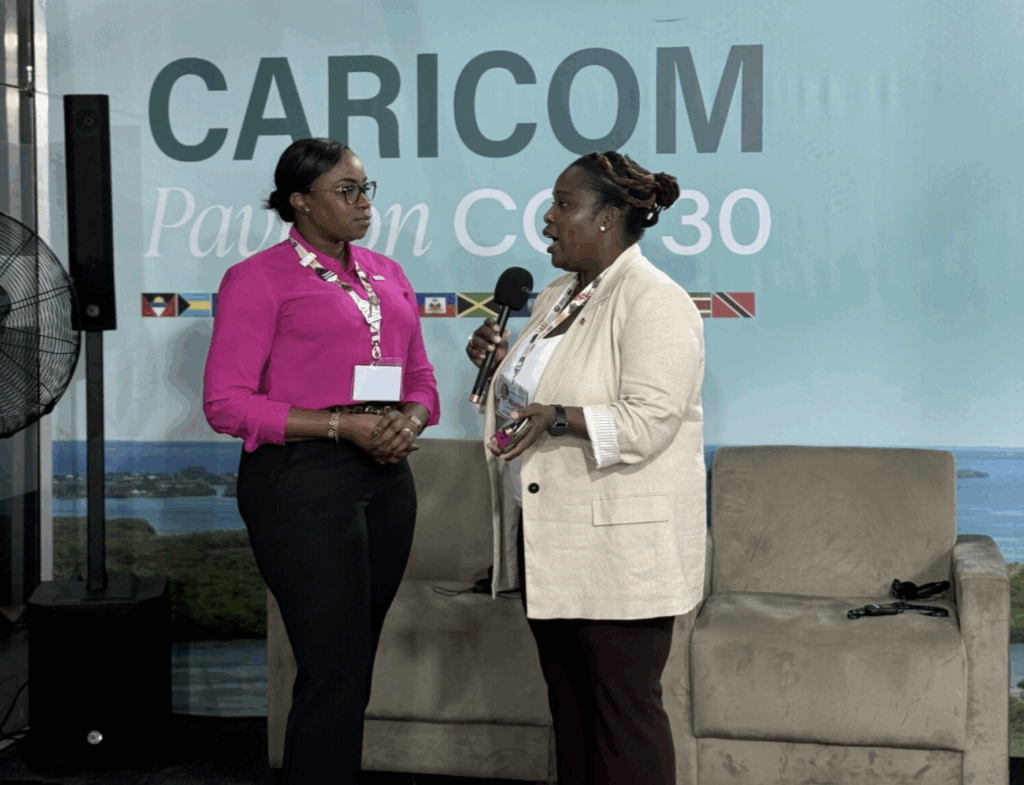
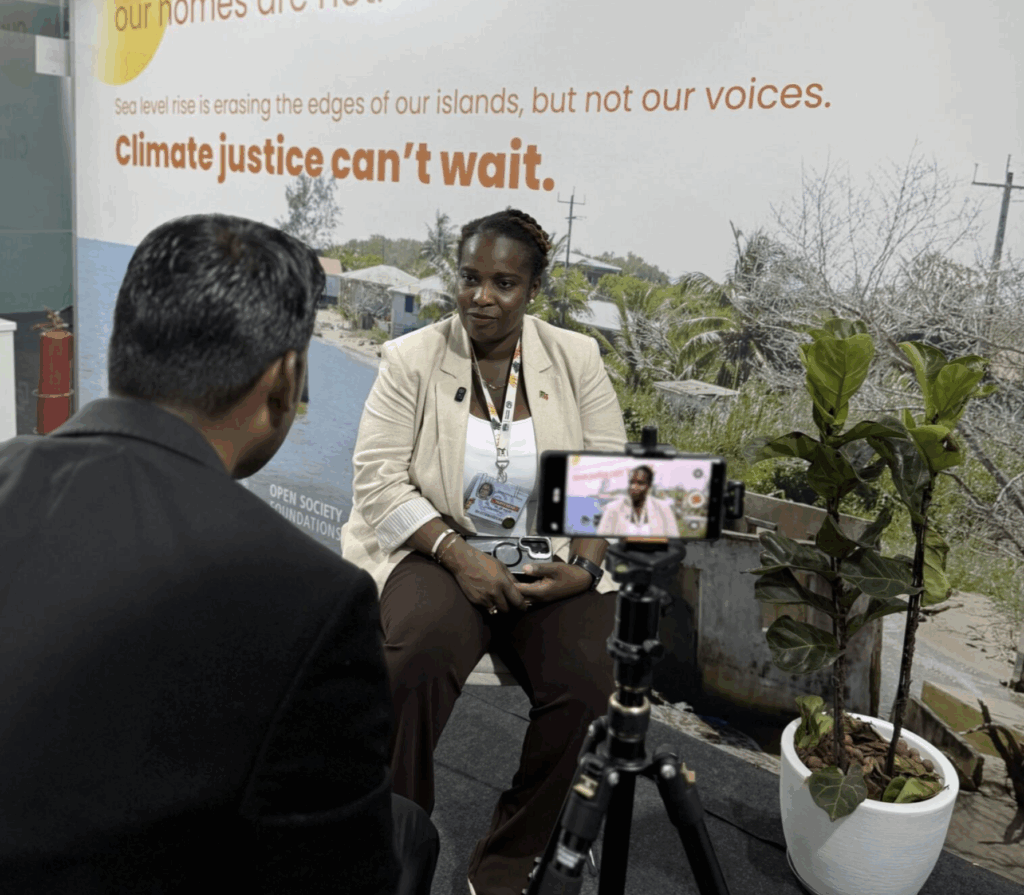
» Sessions and Roundtables
The delegation also contributed to high-level sessions, technical dialogues, and thematic roundtables focused on climate resilience, development financing and a just energy transition among other thematic priorities in the grander COP30 setting.
Through these engagements, the delegation reinforced the nation’s commitment to ambitious climate action and strengthening the partnerships necessary for driving impactful, cross-connecting environmental solutions.
» The Local Linkages – Connecting our NDPF and SISA
The Federation’s participation in COP30 is in keeping with our National Development Planning Framework and its implementation mechanism, the Sustainable Island State Agenda (SISA), as well as our locally and internationally designated climate commitments.
Saint Kitts and Nevis has been on a targeted and progressive mission to ensure that our twin-island Federation is poised to sustainably welcome a transition to renewable energy – mainly via geothermal and solar sources – as the primary engines of our SISA transformation and we have been exploring and capitalizing on transition-centered support systems, such as the opportunities provided by COP30, that will further facilitate our doing so.
-END-


